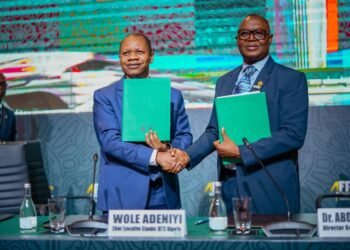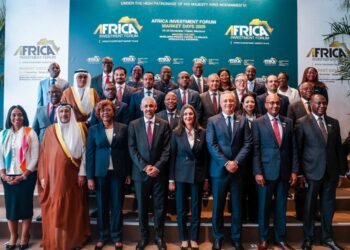The African Development Bank (AfDB) at the UN Convention to Combat Desertification conference has urged Africans to stop the activities that drive land degradation and increase practices to rehabilitate degraded lands.
Halting and reversing land degradation can transform the land from a source of greenhouse gas emissions to a reduction by increasing carbon stocks in soils and vegetation. Land degradation neutrality aims to balance anticipated losses in land-based natural capital and associated ecosystem functions and services with measures that avoid and reduce land degradation and produce alternative gains through land restoration and sustainable land management approaches.
During his opening remarks, Laouali Garba, Manager for Agriculture Research, Production, and Sustainability at the African Development Bank, said: “The Bank supports African countries in finding solutions for the sustainable management of natural resources to enhance the resilience of populations to the adverse effects of climate change and variability.”

AfDB strengthens commitment to making Africa better
Since the launch of the Bank’s Feed Africa strategy in 2015, more than 74 million people have benefited from access to improved agricultural and sustainable land management technologies. Garba said that the Technologies for African Agricultural Transformation (TAAT) program had provided 11 million farmers in 29 African countries with proven agricultural technologies.
“As the champion of resource mobilization to accelerate the implementation of the Great Green Wall Initiative Priority Investment Plan (2021-2030), the African Development Bank welcomes this partnership with the Global Mechanism for the UN Convention to Combat Desertification.”
Laouali Garba
As an implementing agency and accredited entity to the Global Environment Facility, Green Climate Fund, and the Climate Investment Funds, the African Development Bank is co-financing projects that contribute to addressing land degradation in Africa.
The first two-day sessions of the weeklong workshop (9th to 20th May 2022) in Abidjan focused on financing opportunities that have the potential to deliver transformative projects and programs to boost the Great Green Wall initiative in West Africa.
Accessing AfDB’s finance, remarks from other partners
Rita Effah, Senior Climate Finance Officer and Africa Climate Change Fund Coordinator outlined how to access African Development Bank financing: “The Africa Climate Change Fund supports regional member countries to directly access climate finance by preparing bankable projects to access climate funds and also by supporting the implementation of small-scale adaptation projects, including land restoration, to enhance communities’ resilience.”
Speaking at the conference, Sarah Toumi, Program Management Officer of the Great Green Wall initiative, said the Green wall Initiative is a stone throw away in supporting in fighting against land degradation.
“The Pan-African Initiative of the Great Green Wall is a nature-based solution to the complex challenges facing humanity and a compelling symbol of what is possible if we work together to protect and restore our planet. It is one piece in the puzzle in providing genuine alternatives for people increasingly working together to stop the drivers of land degradation and increase rehabilitation of degraded lands.”
Sarah Toumi
Adding to the discussion, Cathrine Mutambirwa, the Program Coordinator of Land Degradation Neutrality and Land Restoration at the Global Mechanism, said: “We work with partners to improve the capacity to design transformative land-based interventions to build resilience and improve rural livelihoods. With the African Development Bank and other partners, we complement each other well to move the projects quickly.”
Land-based transformative projects and programs can target a wide range of funding sources, by combining public, private, and blended financial resources, including the Global Environment Facility, the Green Climate Fund, the Adaptation Fund, and other financing mechanisms from multilateral and bilateral banks, like the Land Degradation Neutrality Fund.
READ ALSO: Demand for Seafood and Fish Products in Ghana to Upsurge- USDA























